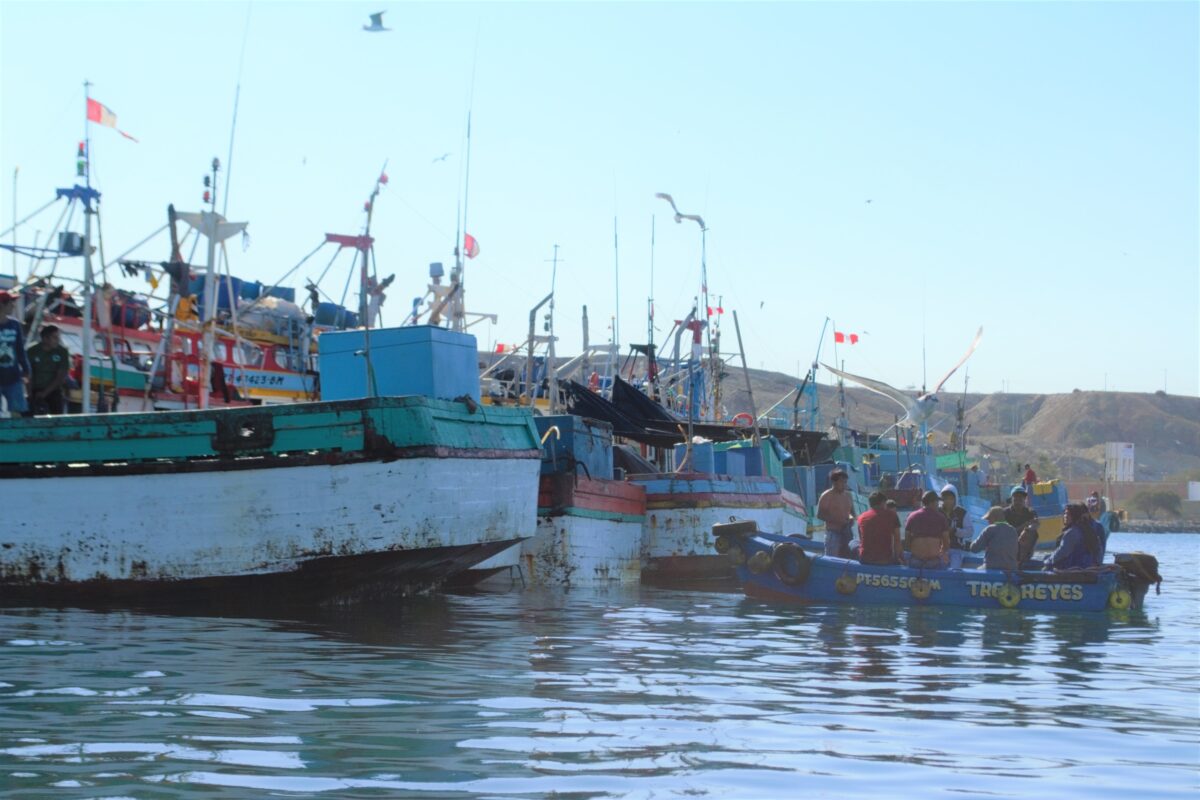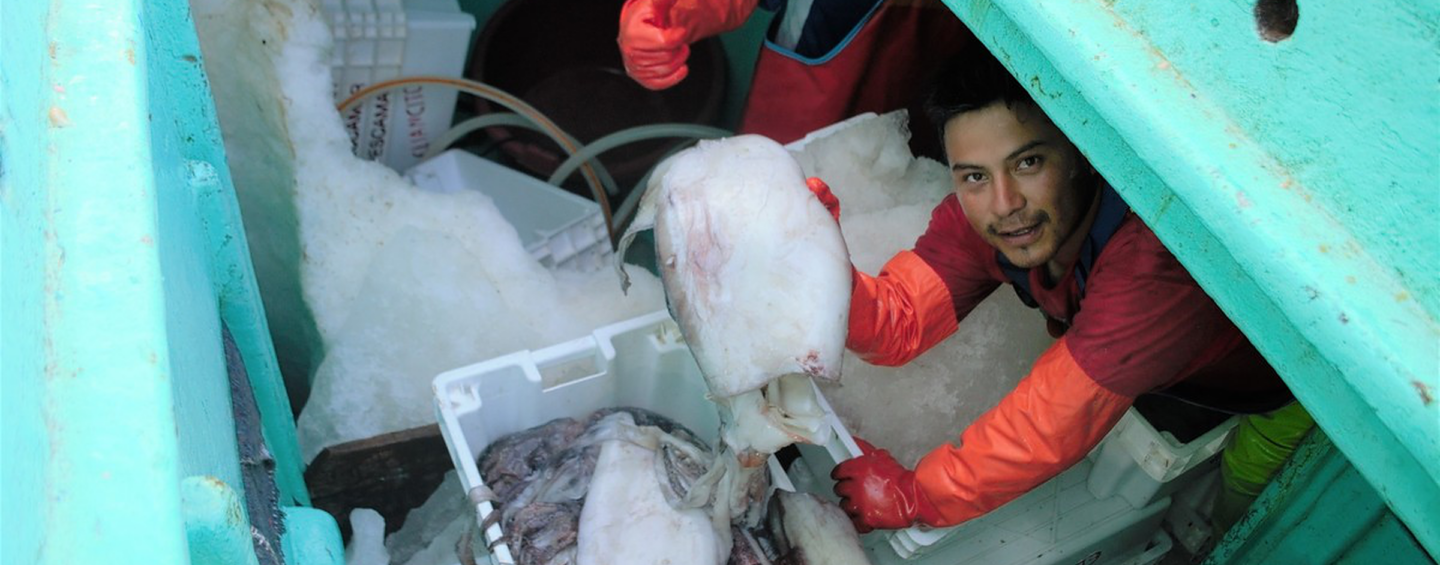Key Takeaways
- Artisanal and small-scale fishers are often overlooked in fisheries policy.
- Formalization of fisheries ensures they are covered by national laws.
- Recognition of small-scale fishers is important for sustainability and to protect fishing communities.
Artisanal fishers make up a significant part of Peru’s jumbo flying squid fishery. However, despite their important contribution to the fishery, artisanal and small-scale fishers are often overlooked in national fisheries management.
SFP has been working with the Committee for the Sustainable Management of the Southern Pacific Jumbo Flying Squid (CALAMASUR) to ensure recognition of these fishers, as part of a larger effort to improve the regional sustainability of the fishery.
SFP helped facilitate the formation of CALAMASUR, an industry-led group of squid producers, processors, and exporters from Chile, Ecuador, Mexico, and Peru. SFP continues to provide technical and scientific support to the organization.
A victory for squid sustainability
In February 2020, CALAMASUR achieved an important victory when the South Pacific Regional Fisheries Management Organization (SPRFMO) issued the first-ever Conservation and Management Measure (CMM) for jumbo flying squid in international waters.
Among many important provisions, the CMM required Peruvian artisanal vessels to be included in the registry of vessels that are monitored by SPRFMO.
The supply chain drives action
However, the Peruvian government was slow to act. In 2020, more than 20 major buyers of jumbo flying squid in the US and Europe, all members of SFP’s Global Squid Supply Chain Roundtable, called on the government to complete the formalization of the Peruvian artisanal fleet, so that they are covered by law.
The companies asserted that formalization is required to ensure compliance with the CMM and advance the sustainability of the fishery – recognizing the thousands of Peruvian families whose livelihoods depend on jumbo flying squid. In addition, failure to regulate the fleet would risk Peruvian products being classified as illegal, unreported, and unregulated (IUU) in destination markets that have sustainability requirements.
Progress on formalization
This effort, with actions by other local stakeholders, led the Peruvian government to start formalizing the more than 3,300 artisanal vessels targeting squid and mahi in Peruvian waters. More than one-third of the vessels have obtained vessel licenses, a key first milestone in the formalization process.
In 2021, the government added the first two artisanal vessels into the SPRFMO list of vessels authorized to fish for squid.


